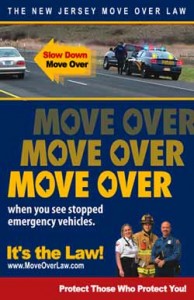New Jersey’s least experienced drivers are engaging in increasingly risky behavior behind the wheel. The troubling revelation comes in a recent study by Fairleigh Dickinson University’s PublicMind, co-sponsored by the state’s Division of Highway Traffic Safety.
The overall percentage of New Jersey drivers who report having sent a text message while driving has flattened out at 1 in 4 (25 percent). However, the study finds that among drivers under age 30, those who admit to texting while driving increased 8 points from a year ago (64 percent vs. 56 percent). The sobering fact is that younger drivers are more than twice as likely (17 percent) as any other age group to say they send texts “very often” while driving.
Similarly, while overall use of hand-held cellphones while driving (39 percent) has not increased over the past year, the percentage of drivers under the age of 30 saying they “very often” or “sometimes” use their hand-held cellphones while driving increased 10 percentage points (to 23 percent from 13 percent).
“Most drivers seem to have gotten the message that driving while talking or texting is a bad idea,” said Dan Cassino, the principal investigator, “but that doesn’t make the roads much safer if the least experienced drivers are more likely to be paying attention to something other than the road.”
There was also a decrease in the percentage of drivers under the age of 30 who report always wearing their seat belts when driving (83 percent), down 8 points from last year (91 percent). This decrease re-establishes the youngest age group as the least likely to buckle up when driving, after they had achieved parity in the measure last year.
Drivers under 30 are also less likely than others to use their seat belt when they are passengers. They are 11 points less likely than others to say that they always buckle up in the front passenger seat (79 percent) and 11 points less likely to say that they do so while in the back seat (40 percent). This too is down significantly from the 2010 figures (87 percent and 57 percent, respectively). “It is troubling that our youngest, most inexperienced drivers are the least likely to wear seat belts,” said Gary Poedubicky, acting director of New Jersey’s Division of Highway Traffic Safety. “For inexperienced drivers not to buckle up is a potentially deadly combination.”
One in 4 New Jersey drivers (26 percent) say they drive over 65 miles per hour on state highways “most of the time,” with another 1 in 4 (25 percent) saying that they do so “often.” One in 4 (25 percent) also say that they drive over 70 “most of the time” or “often.” Again, younger drivers cause concern: 64 percent say they regularly speed on highways, up from 56 percent a year ago. In addition, a third of drivers (34 percent) between 17 and 29 say they regularly go over 70 miles per hour on the highway, while only 22 percent of those aged 45-59 and 16 percent aged 60 and over say they do so.
About 1 in 5 New Jersey drivers (18 percent) admit to having consumed alcohol before driving, unchanged from last year’s figure. Once again, though, young drivers are significantly more likely than other age groups to say that they had driven after drinking, with 24 percent saying that they had done so, up 9 points from last year.
“Alcohol is a factor in 25 percent of our fatal crashes in New Jersey,” Poedubicky said. “A key reason for this is the mistaken belief on the part of people that they are OK to drive after having a few drinks.”
The number of drivers who have been involved in a crash has remained unchanged since 2008. About 1 in 6 drivers (16 percent) say they have been in a collision in the past three years. However, the figures include a significant increase in the proportion of drivers under 30 who say they have been in a collision: 28 percent, up from 21 percent last year.
One reassuring note may be that younger drivers may recognize their driving flaws, as they are significantly less likely (53 percent) than all other age groups to say they are “above average” drivers. “It’s good that younger drivers recognize that they’re not as good as others on the road,” said Cassino, “but it doesn’t seem to be leading them to drive any more carefully.”
The Fairleigh Dickinson University survey was co-sponsored by the New Jersey Division of Highway Traffic Safety and carried out by telephone from April 14, 2011, to May 17, 2011,using a randomly selected sample of 1,002 New Jersey residents aged 17 and over who report they drive regularly, including an oversample of drivers under the age of 30. It has a margin of error of +/-3 percentage points.








